| |
Cornellà
Centre |


|
23-12-1983
Cornellà
de Llobregat is one of the cities around Barcelona that grew very fast
in the 50's and 60's. The name is derived from a Latin name 'Cornelianus'
who probably had an estate there in ancient times. Until Nov. 2003, this
station was only called 'Cornellà'.
|
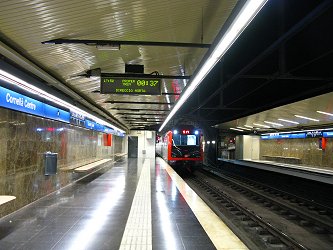
|
| |
Gavarra |
|
23-12-1983
Part of
Cornellà de Llobregat. 'Gavarra' means 'landscape with low hills'.
|
|
| |
Sant
Ildefons |
|
23-11-1976
Neighborhood
in the City of Cornellà de Llobregat - no local reason why this name
was chosen for this residential area.
|
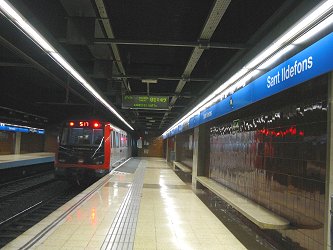
|
| |
Can
Boixeres |
|
23-11-1976
This former
manor house is still there and the park around it, open to the public,
still shows some box-trees that gave the name to the estate.
|
|
| |
Can
Vidalet |
|
23-11-1976
Originally
called 'Maladeta'. Like other stations in this area 'Can ...' evokes a
former manor house belonging to a family called Vidalet.
|
|
| |
Pubilla
Cases |
|
05-02-1973
Neighborhood
in the City of L'Hospitalet referring to Josefa Cases i Clavell, who was
the heiress (pubilla) of an estate called Cases.
|
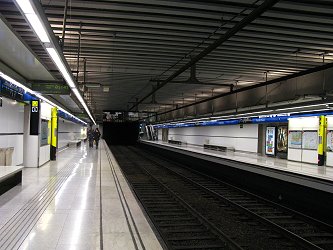
|
| |
Ernest
Lluch
|
 |
25-07-2021
Fill-in
station added right at the city border between Barcelona and L'Hospitalet,
initially planned as 'Cardenal
Reig', eventually named after a politician and University professor killed
by ETA in 2000.
|
|
| |
Collblanc
|

|
03-11-1969
Originally
opened as 'San Ramón', it was eventually changed to show the name
of the neighborhood on the city limits between Barcelona and L'Hospitalet.
It sounds like 'white collar', but 'coll' actually also means 'low mountain
pass', although it's difficult to recognise anything mountainous in the
area.
Future interchange
with line L9.
|
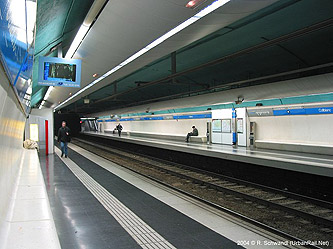
|
| |
Badal
|
|
03-11-1969
The name
of a part of the city ring road comes from the owners of an old mill in
the area.
|
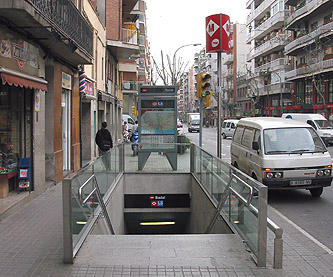
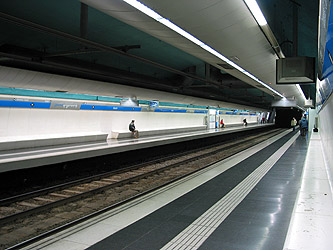
|
| |
Plaça
de Sants |
 |
03-11-1969
Originally
only called 'Sans', it's in the heart of this historic district of Sants-Montjuïc,
actually meaning 'saints'. As an exception for the Barcelona Metro 'Plaça
de' was added to distinguish this station from the nearby 'Sants-Estació'
station on L3/L5.
|
|
| |
Sants-Estació |


|
03-11-1969
Station
serving Barcelona's major railway station; L5 platfroms lying parallel
to the (also underground) mainline tracks, on the northern side. Linked
to L3 via a long and rather narrow corridor.
|
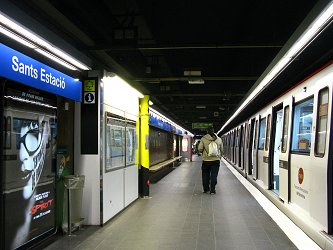
|
| |
Entença |
|
03-11-1969
Street named
after Berenguer d'Entença who was a Catalan nobleman and fought with
and against Rocafort in the Mediterranian during the 13th century.
|
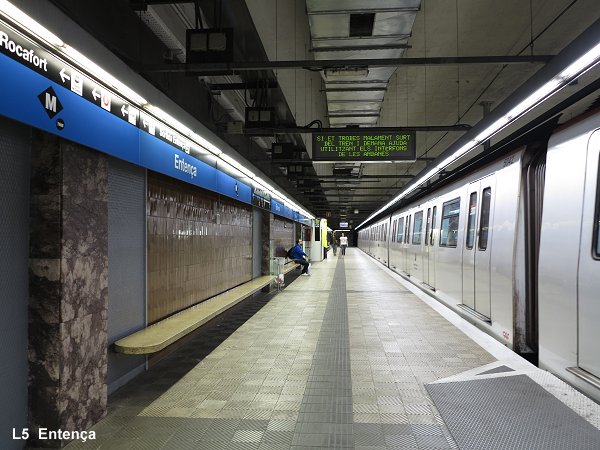 |
| |
Hospital
Clínic |
|
03-11-1969
This hospital
was opened in 1906 and houses the Faculty of Medicine of the University
of Barcelona.
|
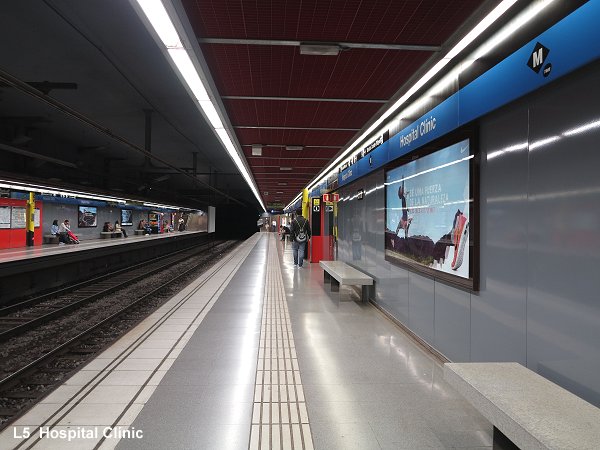
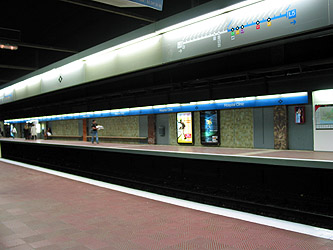
|
| |
Diagonal
|



|
03-11-1969
The original
name was 'Diagonal - Rambla Cataluña'. See L3 for more details.
|
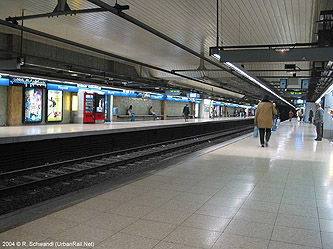 2004
2004 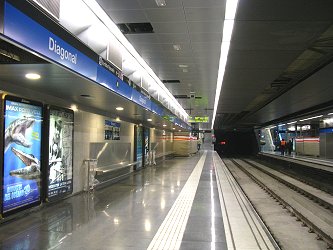 2009
2009
|
| |
Verdaguer
|
 |
26-06-1970
Originally
called 'General Mola'. Square paying homage to the very important Catalan
poet, Jacint Verdaguer i Santaló (1845-1902)
|
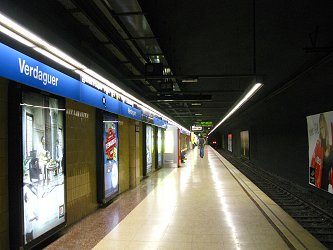
|
| |
Sagrada Família |

|
26-06-1970
This temple
is Antoni Gaudi's most important work in Barcelona (work started in 1882
and might be finished in ?).
|
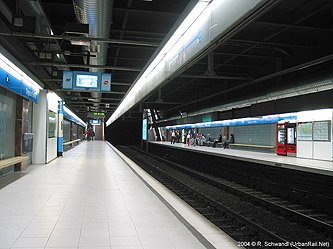
|
| |
Sant
Pau | Dos de Maig |
|
26-06-1970
This huge
hospital complex was built at the beginning of our century by L. Domènech
i Montaner and is one of Barcelona's modernist masterpieces. Original
station name was 'Dos de Mayo', an adjacent street.
With the
hospital being relocated, the station named changed from 'Hospital de
Sant Pau' to 'Sant Pau-Dos de Maig' in 2010.
|
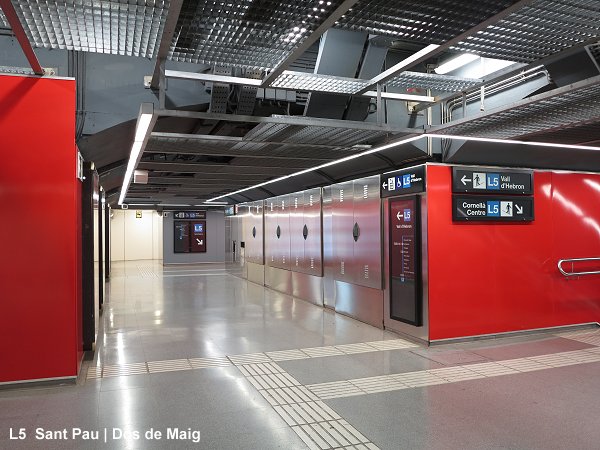
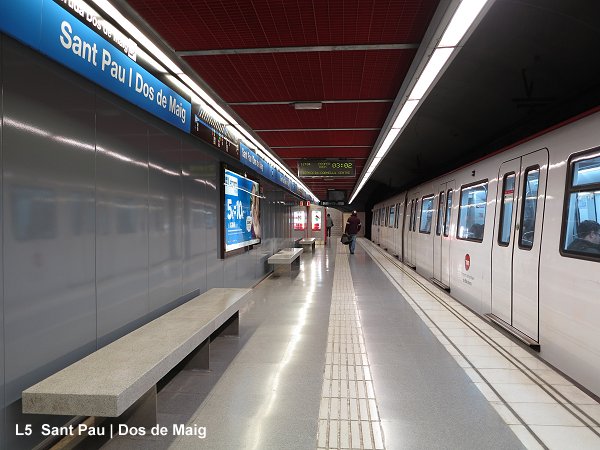
|
| |
Camp
de l'Arpa |
|
26-06-1970
The name
actually translates as 'harp field' although there's nothing pointing
at a harp in the area. It could come from 'Camp de l'Arca' which would
make it a field of graves. Anyway, it's now the name of the neighborhood.
|
|
| |
La
Sagrera |

 

|
21-07-1959
The name
of this neighborhood actually refers to a 'sacred area' around the parish
church.
The new
station for the AVE, the Spanish high speed train, is being built in the
area - the present metro station, located below Meridiana avenue and previously
simply called 'Sagrera', has been renamed 'La Sagrera' to distinguish
it from the new railway station served by lines L4 and L9.
|
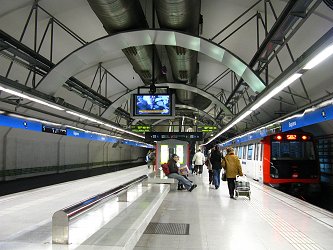
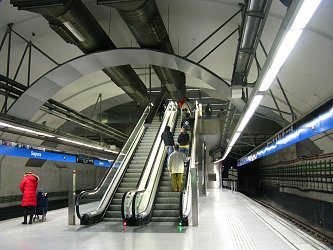
|
| |
Congrés
|
|
21-07-1959
Initially
called 'Viviendas del Congreso'. This area was built up to house the participants
of the Eucaristic Congress held in Barcelona in 1952.
|
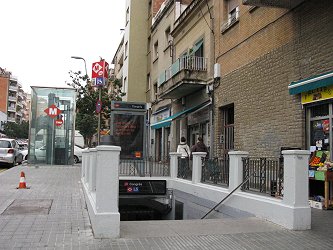
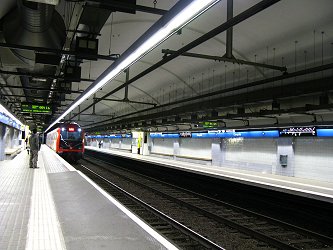
|
| |
Maragall |
 |
21-07-1959
Avenue and
square dedicated to the poet Joan Maragall i Gorina (1860-1911).
|
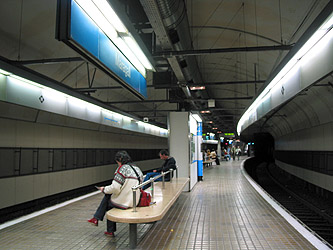
|
| |
Virrei
Amat |
|
21-07-1959
Manuel d'Amat
was Virrei (vice-king) of Peru in the 18th century.
|
|
| |
Vilapicina |
|
21-07-1959
Neighborhood
built around an ancient church Santa Eulàlia de Vilapicina.
|
|
| |
Horta |
|
05-10-1967
Very old
village, now together with Guinardó one of the 10 city districts.
The name evokes former gardens and woods.
|
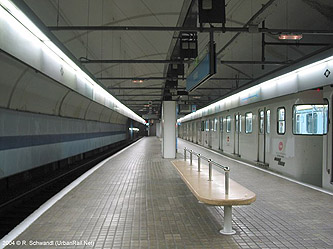
|
| |
El
Carmel |
|
30-07-2010 |
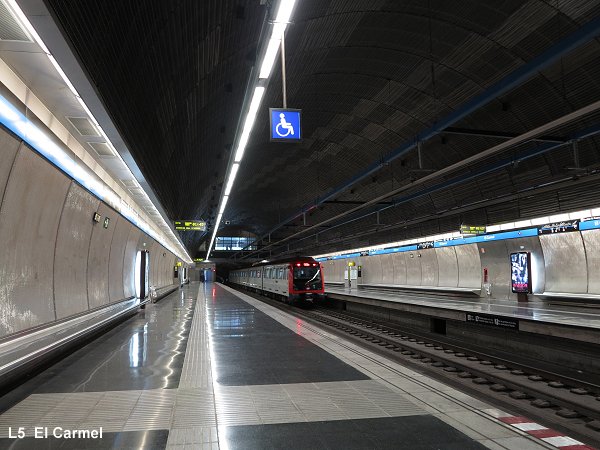 |
| |
El
Coll | La Teixonera |
|
30-07-2010 |
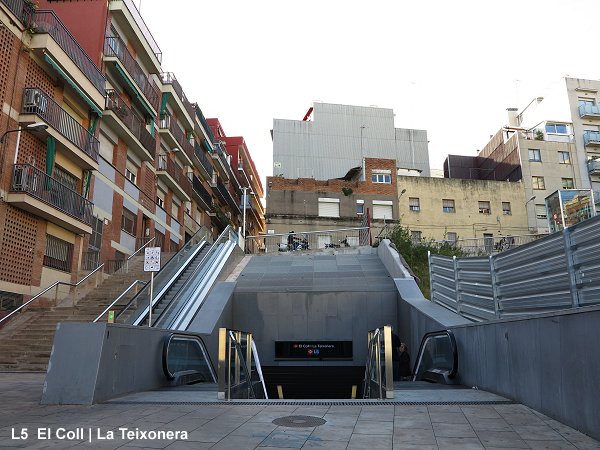
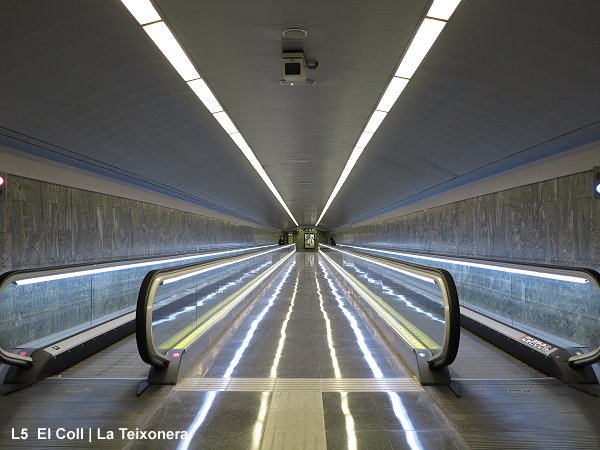
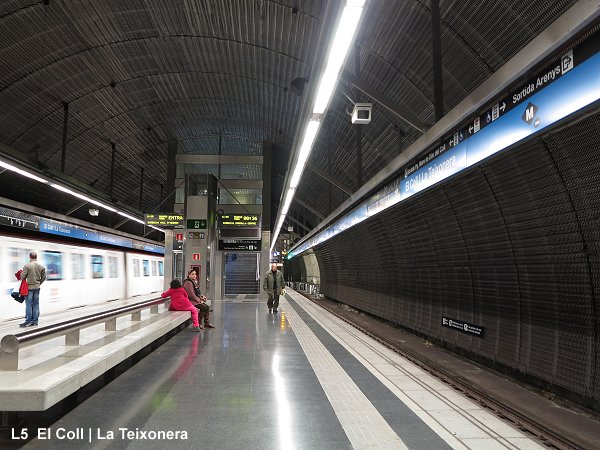
|
| |
Vall
d'Hebron |
 |
30-07-2010 |
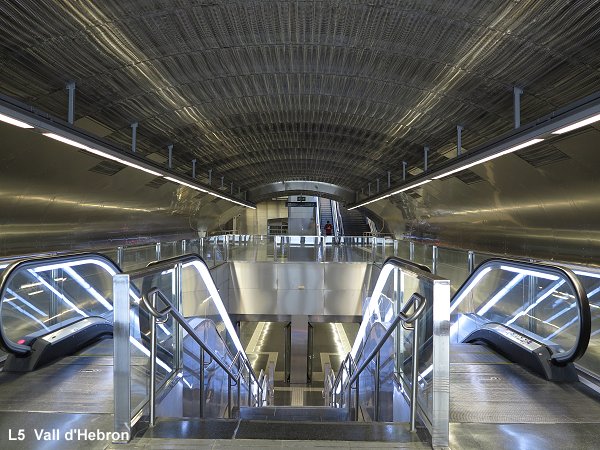
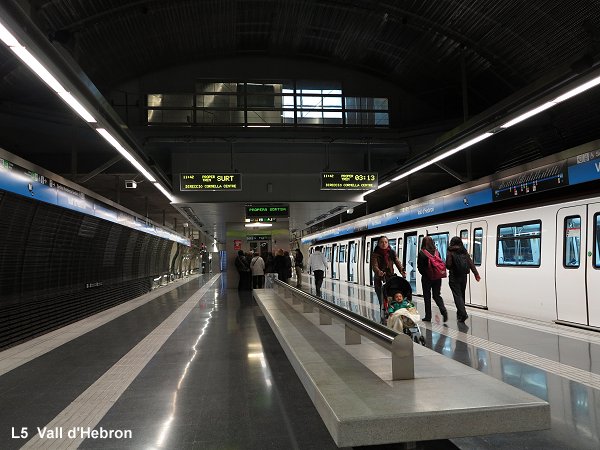
|
